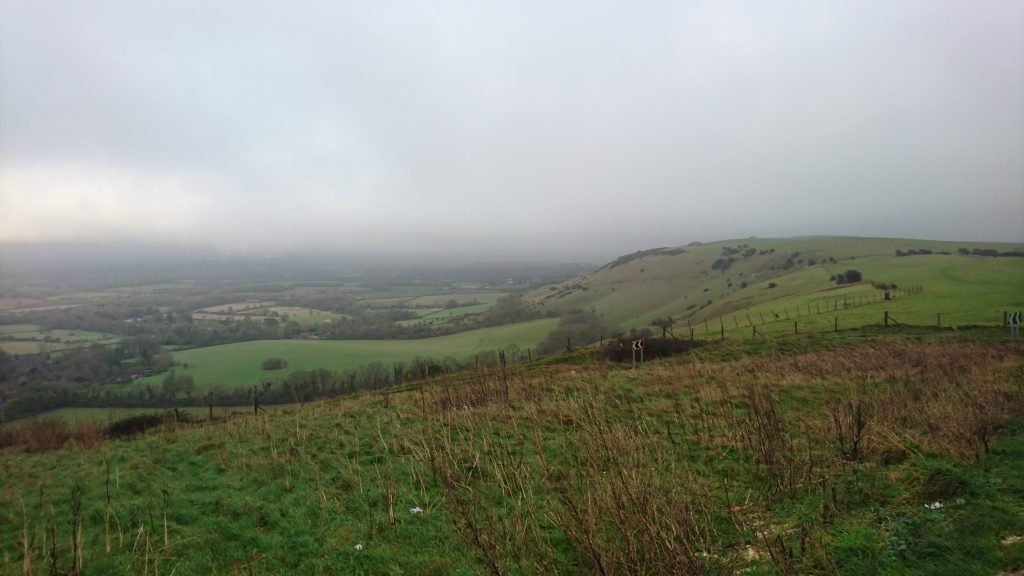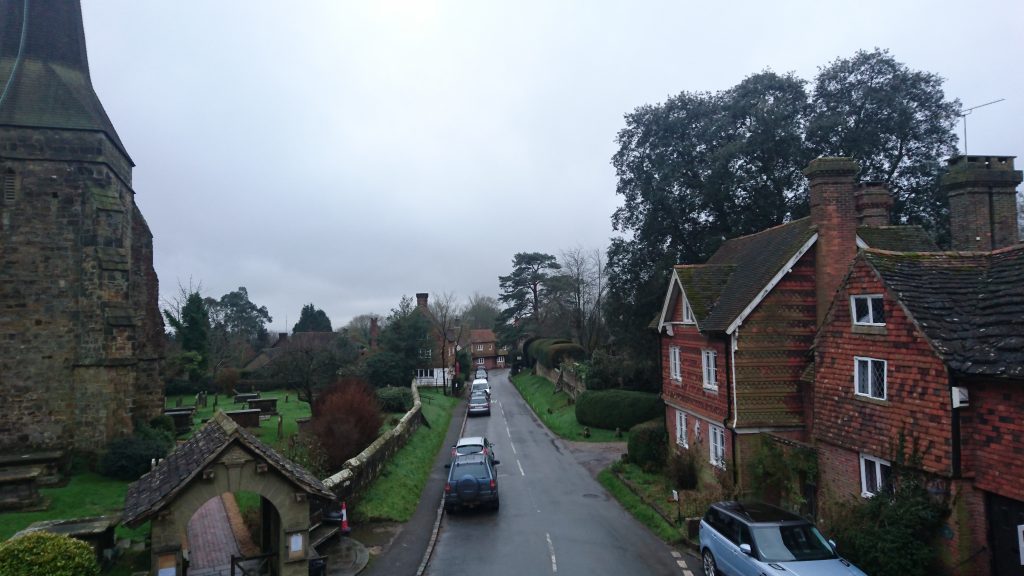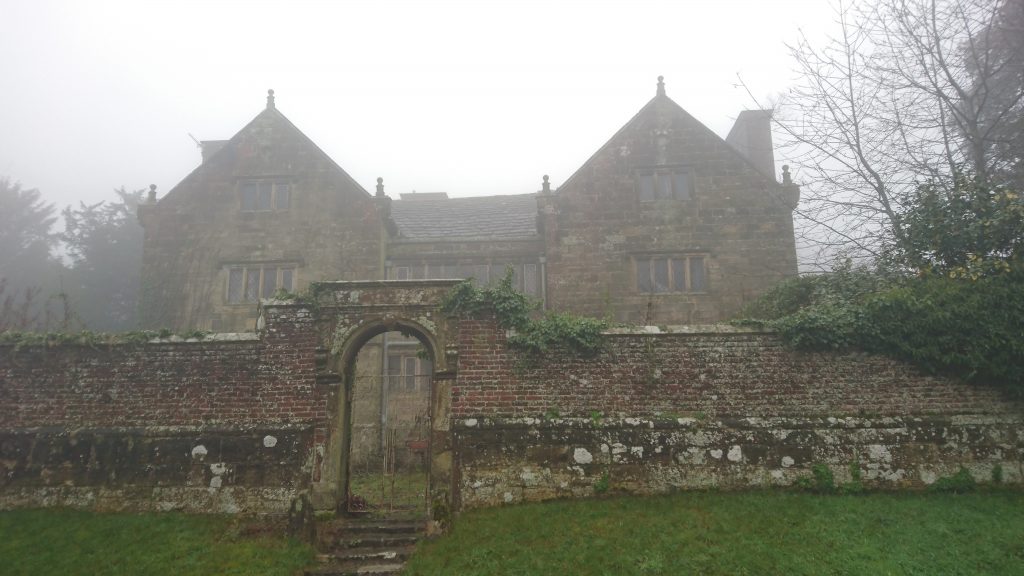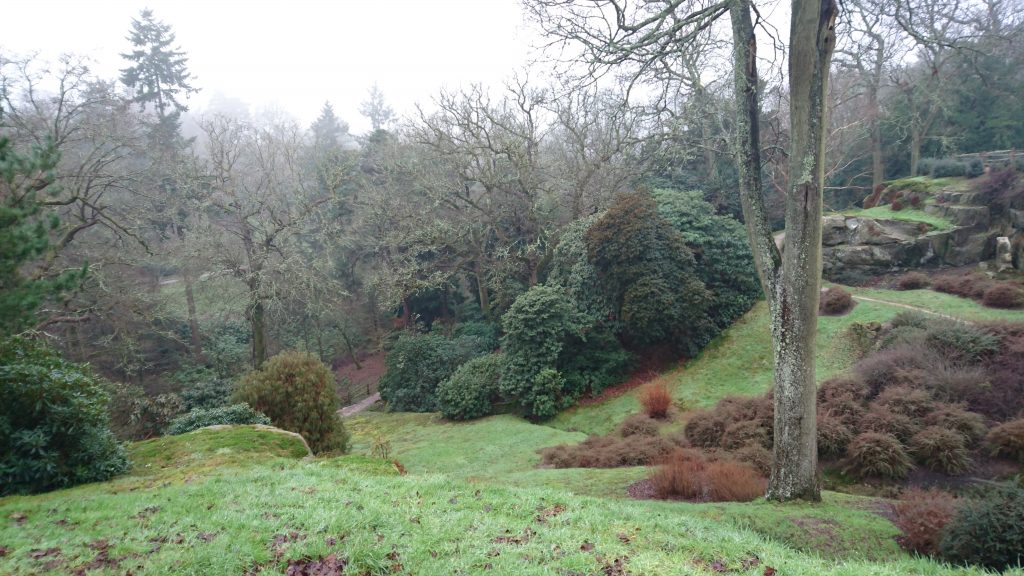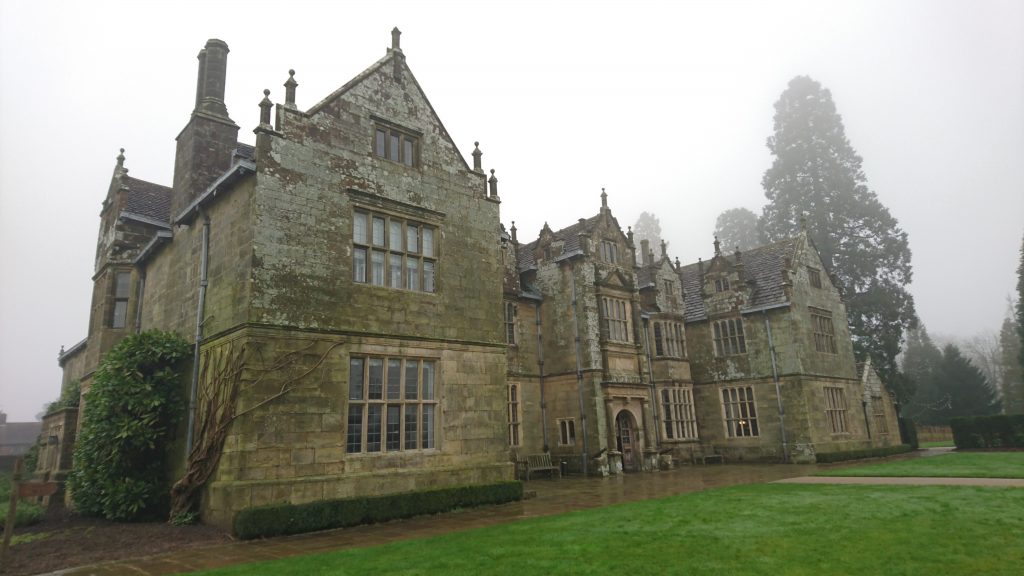It must be a universal trait to grow up thinking your country is the best at everything; the most beautiful; the fairest and the one everybody would die to live in. At some point, around the time I got the travel bug, this illusion was shattered. I’ve been to Norway and seen some sensational natural beauty, I’ve been to Georgia and seen the Narikala fortress looking over Tbilisi light up at night, I’ve seen New York and Florence, soaking up the amazing things man can create. And so my belief in Britain’s supremacy at just about everything exists only in a loose sense of national pride, but sometimes I get a reminder of just how enchanting England can be.
For my 34th birthday, my boyfriend took me to Sussex and I fell in love with my country all over again. Our trip started at Ditching Beacon, where top of the world views were promised, only to find it was a pea-souper which lent the walk a mysterious quality, with brief glimpses of the steep valley below, a patchwork of fields, roads, hedges and small settlements. Along the walk, we came across a dew pond, a small pond dug by farmers to ensure their livestock had something to drink. With a backdrop of impenetrable fog and trees angled like something from a German expressionist film, the pond took on a dramatic turn equal to a Shakespearean rant or a setting suitable for Cathy to haunt Heathcliff.
Ditching beacon, at its highest point a modest 248m, sums up England’s appeal. Beautiful without being overbearing, intimate in scale, accessible to almost everyone and like being given a warm embrace. I love the fences and gates to clamber over, the brief hello’s you give fellow walkers, the inevitable visit to a pub with a roaring fire or a spacious beer garden. Walking the modest routes of England can induce a looseness in the gait, or as some call it, “feeling relaxed”.
After being startled by an exuberant giant dog twice walking from the foggy Beacon down to Ditchling, we composed ourselves and walked to the village where we ate at the White Horse Inn, a 12th century pub and B&B featuring the ubiquitous yummy pulled pork and such food. The barmaid was a model of efficient loveliness; capable of playing with children and serving adults at the same time. Next door to it is a striking old building, with fascinating external features like a staircase going up to the first floor. Most people put them in the building, but in this case, it works a treat. As ever with afternoon visits to pubs, I am almost overcome with slumber so the idea of walking back up a mountain (I said it was just 248m earlier, but it’s at least 1000m after booze) did not appeal, so we took a cab to the Beacon. After numerous people said “what is Ditching Beacon?” like it wasn’t a massive hill overlooking the town, we resorted to trusty Google maps.
Our trip went onwards to The Cat Inn, in West Loathly, a village of just 2000 people set amongst rolling fields and densely wooded areas. In the manner of all gorgeous English villages, it features a smattering of medieval buildings, wonky walls, lovely village churches and a reminder of a great Doctor Who quote about village life:
The Doctor: So, what do you do around here to stave off the, you know…
Amy Pond: [finishing] … boredom?
The Doctor: [simultaneously] … self-harm?
Because as much as villages are a treat for the eyes and soothing on the ears, they have the potential to be crushingly dull. But, short terms stays allow leisure to lead the way and a preprandial wander around the village took us to St Margaret’s Church with the most remarkable graveyard I’ve seen outside of Paris’ catacombs; a terraced graveyard over six levels, planted with many species of trees and flowers. You encounter some stunning views of the Weald and onto the South Downs at the upper level. Nearby is Priest House, a 15th century hall house with a garden of over 150 herbs.
The Cat Inn is everything you’d want in a village pub and more. First off, seeing one of the kitchen staff picking herbs from the garden just fills me with pleasure. Secondly, it has been awarded a Bib Gourmand, something I have become obsessed with. The rules of Bib club are simple: good food, three courses, under £28. Thirdly, the staff were unfailingly friendly in a way that is disarming to London folk and fourthly, their rooms have a Nespresso machine in. I’m easy to please, but I’d also add that the bed was like a wonderful cocoon where sleep-dreams are made. Not actual dreams, but the sleep of your dreams, ensconced in a cosy and airy duvet and sinking pleasantly into the mattress.
Onto the food. I had a starter of Spiced Falafel, Aubergine yoghurt, Roasted Tomato and Harissa, where the tomatoes burst open with glorious flavour and all the ingredients worked together like the best of friends. The main was a Pork and cider pie with mouth-watering pastry that was delicate to the knife without any dry flakiness. It came with a rich gravy, always-brilliant swede and carrot mash and Sussex greens. By the end of the main I was pushing my body into awkward shapes for the pudding to fit in. But it was worth it. Sticky Toffee pudding, a treat as ever.
This was all washed down with some of the best English wine I have ever tried, and I have tried a lot as is my patriotic duty. We had a superb white Pinot Noir (it is a thing, and is something like a blush rose wine) from Albourne estates, a local vineyard. As with most English wines, the flavour is sweet, delicate and carries a mineral essence. It is also a richer, more punchy wine than England’s cool climate usually produces. This one had a delightful personality and at £24 for a bottle, is good value for a restaurant.
The next day, refreshed from bed of sleep-dreams, Nespresso and excellent full English, we headed to a truly remarkable National Trust site. Wakehurst Place consists of a relatively interesting country house, laid out by someone without knowledge of how country houses should look. The clown, for instance, saw fit to shove two chairs facing each other into a window bay, which you accessed by getting round the back of another table and chair setup. What an intense home. The gardens and the Millennium Seed Bank are what it’s all about. Set amongst nearly 500 acres, there is a nature reserve, ornamental gardens, wetlands and woodlands, it is a one-stop guide to landscapes and views. The Himalayan Glades was particularly fetching, with the tallest Douglas fir reaching 43 metres, which would loom over Rio’s famous Christ the Redeemer statue. The route around Wakehurst Place is in a meandering horseshoe shape, with great variation in trees and plants. You could easily make a day of it.
Our last stop of the weekend was The Bricklayer’s Arms in Chipstead. We booked in advance, and it was hugely busy when we arrived past 2pm. There’s a reason why, this is the sort of place where you eat the food and question why it’s not always like this. The Sunday lunch was terrific, with the chicken being cooked on the bone and the roast potatoes having that essential mix of outer crispiness and inner softness. A gravy boat reminded us we were eating brilliant food that was down to earth and the pudding were classic British treats. By the meals end, my food baby was doing well and gurgling contentedly.
All weekends have to end, but this was a special weekend that will remain in my mind for a long time. My bloke got it spot on that I’d want to be tramping around soggy England because there’s so much going for it, from the countryside to the food and the innumerable excursions to be had. Even with visibility at less than zero at times, Ditchling Beacon was beautiful and everything we did was full of charm. What more could an Englishman want?

